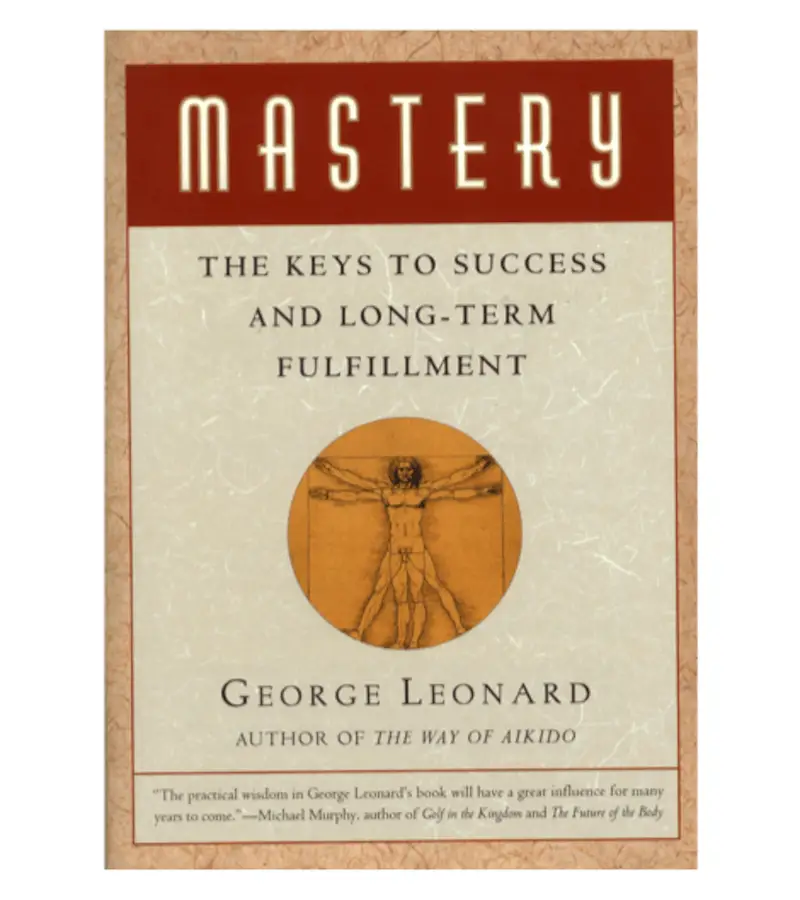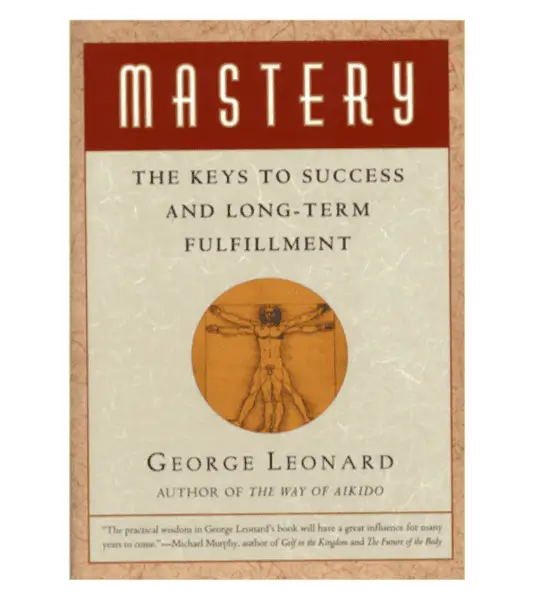“Mastery” explores the journey towards achieving mastery in any field of endeavor. Leonard emphasizes the importance of embracing the process of learning, rather than focusing solely on the end result. He challenges the prevailing cultural obsession with quick fixes and instant gratification, encouraging readers to adopt a mindset of continuous improvement and lifelong learning.
Three-Word Description
Achieving Lifelong Mastery
About the Author
George Leonard was a renowned writer and educator known for his expertise in human potential and personal growth. He was a pioneer in the field of aikido, holding a fifth-degree black belt, and served as the president of the Esalen Institute. Leonard’s deep understanding of mastery and his passion for continuous learning are evident throughout his book, “Mastery.”
Significant Notes
- The Myth of the Overnight Sensation: Leonard debunks the myth that mastery can be achieved quickly and effortlessly. He highlights the necessity of dedicated practice, perseverance, and embracing the plateau periods that often occur during the learning process.
- The Five Keys to Mastery: The author introduces five essential keys to mastery: instruction, practice, surrender, intentionality, and the edge. He explains how each key contributes to the development of skills and the cultivation of a mastery mindset.
- How to Practice: Leonard delves into the art of practice and provides practical advice on how to make the most of practice sessions. He emphasizes the importance of deliberate practice, focusing on specific areas for improvement, and seeking feedback from mentors or coaches.
- The Zen of Mastery: This chapter explores the connection between mastery and Zen philosophy. Leonard discusses the concept of mindfulness, being fully present in the moment, and the role of meditation in enhancing one’s ability to master a skill.
- The Master and the Dabbler: Leonard contrasts the mindset of the master, who is committed to continuous growth and improvement, with that of the dabbler, who jumps from one endeavor to another without truly dedicating themselves. He encourages readers to embrace the path of mastery and the rewards it brings.
Critical Questions:
- How can we overcome the societal pressure for instant results and learn to embrace the process of mastery?
- What are some practical strategies for maintaining motivation during plateau periods in the learning process?
- How can mindfulness and meditation enhance our ability to master a skill?
- What are the potential pitfalls of being a “dabbler” and how can we avoid falling into this pattern?
My Review:
“Mastery” by George Leonard offers a refreshing perspective on the journey towards achieving excellence in any field. Leonard’s writing is insightful and engaging, drawing on his personal experiences and expertise to provide practical advice and profound wisdom. The book challenges the prevailing cultural mindset that prioritizes quick results and encourages readers to adopt a mindset of lifelong learning and continuous improvement. It inspires and empowers individuals to embrace the process of mastery, recognizing the value of patience, practice, and perseverance. Leonard’s book is a valuable resource for anyone seeking to unlock their full potential and embark on a path of lifelong growth.


